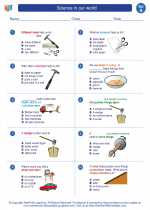Waste Removal
Waste removal is the process of getting rid of waste materials from the body or the environment. In living organisms, waste removal is essential for maintaining a healthy internal environment and preventing the buildup of harmful substances. In the environment, proper waste removal is crucial for preventing pollution and maintaining ecological balance.
Waste Removal in Living Organisms
In the human body, waste removal is primarily carried out by the excretory system. This system includes the kidneys, liver, lungs, and skin, which work together to eliminate waste products produced by the body's metabolic processes. The kidneys filter waste products from the blood to produce urine, while the liver processes and eliminates toxins. The lungs remove carbon dioxide, a waste product of respiration, and the skin excretes sweat, which contains waste products and helps regulate body temperature.
Waste Removal in the Environment
In the natural environment, waste removal is a vital process for maintaining ecological balance. Decomposers such as bacteria, fungi, and earthworms play a crucial role in breaking down organic waste materials and returning nutrients to the soil. This process, known as decomposition, is essential for the cycling of nutrients in ecosystems. Proper waste removal also involves the responsible disposal of non-biodegradable waste materials to prevent pollution and environmental degradation.
Study Guide
- What is waste removal?
- Why is waste removal important in living organisms?
- Which organs are involved in waste removal in the human body?
- Explain the role of decomposers in waste removal in the environment.
- How can non-biodegradable waste be properly disposed of to prevent environmental pollution?
Understanding the process of waste removal is crucial for maintaining a healthy internal environment in living organisms and preserving the natural balance of ecosystems. By learning about waste removal, we can develop a greater awareness of the importance of responsible waste management and environmental stewardship.
.◂Science Worksheets and Study Guides First Grade. Science in our world

 Worksheet/Answer key
Worksheet/Answer key
 Worksheet/Answer key
Worksheet/Answer key
 Worksheet/Answer key
Worksheet/Answer key
 Vocabulary/Answer key
Vocabulary/Answer key
 Vocabulary/Answer key
Vocabulary/Answer key
